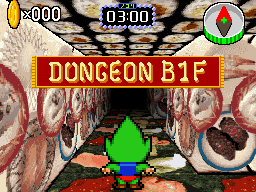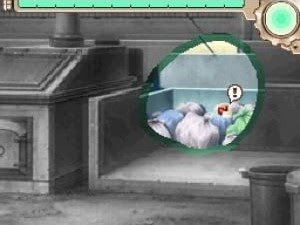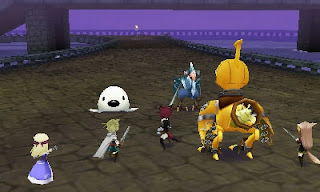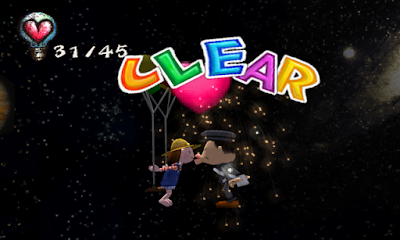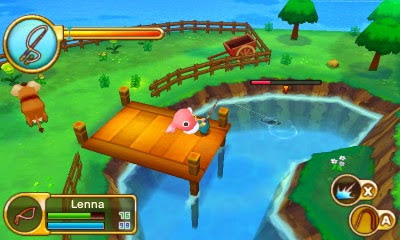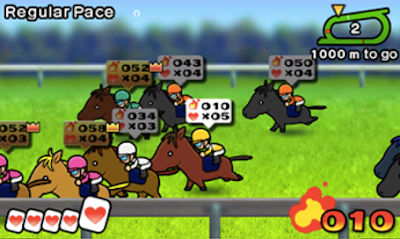When the folks at Nippon Ichi Software revealed The Cruel King and the Great King in early 2021, I was ecstatic. I adored The Liar Princess and the Blind Prince, a puzzler-platformer with a similar aesthetic and vibe--so much so I declared it one of my favorite games of 2019--and thus expected the world from this follow-up.
With The Cruel King and the Great King being a JRPG rather than a side-scroller, though, I couldn't help but wonder how artist and writer Sayaka Oda and her talented team at NIS would handle the genre switch.
I say this because The Liar Princess and the Blind Prince is a wonderfully accessible, streamlined, and unique take on the puzzler-platformer genre. Before I played it, it was hard to imagine how The Cruel King and the Great King would check those same boxes.
After finishing The Cruel King and the Great King, the difficulty makes perfect sense. Although the game is plenty accessible, and some may argue it's streamlined and unique, too, it's not streamlined or unique in the ways I hoped or expected it would be in the wake of The Liar Princess and the Blind Prince.
One noteworthy case in point: there's no traditional overworld map, dotted with towns and dungeons, to explore in The Cruel King and the Great King. Instead, the game presents players with a minimalistic map that's vaguely Metroidvania-esque. Rather than traverse it by jumping from platform to platform, though, you move from point to point by ambling left and right down tight and barren (but beautiful!) hallways.
This is a lot less taxing than scouring a vast overworld or stumbling through a maze-like dungeon, of course, but I personally never found it to be an enjoyable or satisfying alternative to the status quo, and I'm pretty sure most others would feel similarly about this odd design decision. (For the curious, Nintendo's Miitopia does a much better job of tweaking this staple RPG component.)
Another example of how The Cruel King and the Great King tweaks the RPG formula but ultimately fails to produce something gratifying: party members occasionally learn new battle skills, and some of them allow you to target groups of enemies that are lined up vertically, horizontally, or diagonally. Depending on the makeup of your party (and the alignment of your enemies), you can combine these skills to overwhelm the opposition.
Unfortunately, the game conspires in several ways to keep this from happening as often as it could or should. For starters, each character learns just one or two of these skills during an average playthrough. And not only that, but it can take a long time to learn them. Also, enemies typically are grouped in ways that make it possible to defeat some, but not all, using such combos.
Although that's hardly the worst thing in the world, I think The Cruel King and the Great King would have been a lot breezier and a lot more fun if it set things up to make these happen as often as possible. Especially since the game's tussles are fairly ho-hum otherwise.
The Cruel King and the Great King's battles disappoint--though underwhelm may be a better word here--in another important way, too. Early on, the game tells you that you can spare enemies in certain situations. To be honest, that notification basically went in one ear and out the other for me, or whatever the equivalent is for your eyes while reading. Later, I remembered it and looked it up online, worried I might be missing something vital or even playing the game "wrong."
I was missing something, it turns out, but not anything important--as far as I'm aware. If you manage to expose an enemy's weakness and make it sweat, you can let it escape. The thing is, exposing an enemy's weakness is easier said than done, especially early in the game, and even then, there's no guarantee the enemy will agree to flee.
As such, playing The Cruel King and the Great King like it's an Undertale knockoff isn't really possible. Which is just as well, as the game currently doesn't give you any reason to do so. Sparing an enemy doesn't benefit you in any way, or at least it didn't seem to during my playthrough. It was noted in my "monsterdex," but that's it.
It's too bad The Cruel King and the Great King's designers and developers decided to incorporate this element into the experience and then do so little with it. Especially since the story, which follows an orphaned girl who is raised by a dragon and helps local monster-folk while training to become a "hero," is a perfect fit for such anti-RPG gameplay.
Based on what I've said so far, you're probably thinking I wish I'd never wasted my time and money on The Cruel King and the Great King. I don't--and keep in mind this is coming from someone who dropped big bucks on the game's pricey "Treasure Trove" bundle. Oh, sure, the protagonist's slower-than-molasses walking speed occasionally (OK, regularly) got on my nerves. And there were times when the frequency of the battles bugged me, too.
Still, I enjoyed it overall. Its story is the definition of heartwarming and is, without a doubt, the highlight of The Cruel King and the Great King. Its soundtrack is top of the line, too. Even after hearing its main battle theme 100 times, you won't tire of it--or at least I never did. And of course it's filled with gorgeous, hard-drawn art, like most Nippon Ichi games are these days. (See Yomawari, Mad Rat Dead, and Labyrinth of Refrain for evidence.)
Because of that, I had high hopes The Cruel King and the Great King would follow in that game's footsteps a bit more than it did. Oh, well, at least it came through with a killer bedtime story.
See also: The good, bad, and ugly of Heroland (or, why I'm thinking of walking away from this oddball RPG after putting 20-plus hours into it)

















